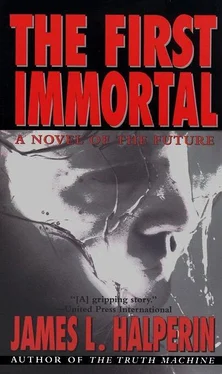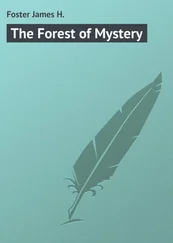September 30, 2090
—AIs in Atlantis, the third largest underwater city, have cracked the language of Dolphins in the North Atlantic, allowing humans to converse with the only species on earth possessing a comparable brain/body weight ratio. Zoologists predict a revolution of interspecies communication as a result of the software advances. Dolphins are expected to be among only a handful of species capable of expressing actual thoughts beyond emotional and instinctual responses.—The WASA board of trustees decides to go ahead with plans to complete within this century the Ceres XIV humaned space station, well outside of Pluto’s orbit. “Even though we now have three similar stations that pass within 200 million miles of Ceres XIV’s proposed course,” WASA Chief Iruy Niragig explains, “the new outpost will nonetheless be a technical milestone, the first ever positioned outside our solar system.”—The last functional warship on Earth leaves service today with the decommissioning of the 2030s-era Typhoon III-class missile submarine ROSTOV 146. The “boomer” has spent its last 45 years of service as an event vessel for World presidents on vacation cruises. Long vilified as a waste of taxpayer funds, the sub will now serve as a museum attraction, beginning with Disney-St. Petersburg’s grand opening.
On Margaret Callahan Smith’s sixth birthday, the home of Gary Smith and Kimber Chevalier overflowed with three dozen children, most of their parents, and nine adult members of the Smith clan, not to mention seven holographic dinosaurs, six rented portable child-size VR machines, two mechanical spaceship simulators, hair and skin recoloring systems, and Margaret’s enormous new android-doll undersea biosphere, her birthday gift from Ben.
“Sure glad nobody’s spoiling her,” Ben joked to Kimber.
She laughed. “Yes, I’m afraid Margaret’s upbringing may be somewhat different from that of the original.”
“Times do change,” he said. “I’ll try to think of this as our own anecdotal experiment on heredity versus environment.”
Then Margaret leaped into his arms. “Hi, Ben. I love my new biosphere!”
She never called him Grampa, nor did she refer to Gary as Dad, even though Kimber was always Mom to her. All the guides on raising well-adjusted transgenerational clones suggested they be taught to use first names for double relations, or potential double relations.
“And I love seeing you smile, sweetheart,” he said. Of course he did! It was the same smile he’d cherished since he was fifteen.
Gary felt a knot tighten in his stomach. Not that Ben had done anything wrong, or even indecorous, but what his unworthy father had in mind for their sweet little girl—that they would someday get married and have sex together—was unacceptable and not a little weird. Sure, he understood the original idea, but was no longer confident that he could handle it.
“Ben,” Margaret asked, “I’m a clone, right?” It was a typical Margaret question, seemingly formed from the very ether.
“Right, honey,” Ben answered, half hoping that would be the end of it, even though with her, it never was. Margaret was inquisitive, which Ben admired, but which also occasionally left him unstrung.
“What does that mean? A clone.”
“It means you have only one biological parent; your genes came from one person, my wife, Gary’s mother.” Ben doubted she’d grasp the entire concept, but didn’t know how else to express it. “You look just like her,” he added.
“Is a clone as good as anybody else?”
“Sure. In some ways better. You were chosen to be like somebody special, somebody others loved. Your parent was so wonderful, we didn’t think the world could do without you!”
“Where’s the first me? Can she come today?”
“Oh, no, honey. She would’ve loved to be here with you, but she can’t come.”
“Why?”
“She died, sweetheart.”
The child pouted. “Died? How?”
“Well, first she got very sick…”
“What’s that?”
“You know how sometimes you stub your toe, or cut your knee, and the invisible little-girl-fixing-machines have to take care of it? And until they do, it kinda hurts?”
“Yes.”
“Well, a long time ago, germs or viruses and things like that—sort of like those invisible machines, only bad ones—would hurt us. And sometimes our bodies would fix themselves, or else doctors could help fix them. But we didn’t have invisible machines back then, so sometimes we didn’t get better at all.”
“Never?” she asked. “Is that what happened to the other Margaret? The other me?”
“Uh-huh.”
“Then what?”
“Then she went to sleep forever; never woke up.”
“Forever? Like Brenda, my guppy?”
Ben nodded.
Margaret looked up in amazement. “But why?”
“Because back then, everybody grew old, and nearly everyone died. They died forever, because we didn’t freeze people.”
“Why?”
“Because hardly anyone had thought of it yet.” Damn. Why hadn’t he listened to Carl? “We just didn’t know. Not really, anyway.”
She thought about this for a moment. “You didn’t die forever.”
“No, I didn’t. I was lucky.”
“But you knew people who died forever, right?”
“Yes. I knew many people who died.” He swallowed hard, fighting back his emotions. “Too many.”
Margaret looked at Ben. Her expression was so lost-Marge, he had to look elsewhere. Little Margaret shone with the same sympathy his wife had radiated so easily to those in pain, most often to Gary. (And who had caused that pain?) Then she hugged him. “Oh, it must have been sad back then.”
“Yes.” He knew he should say more, but couldn’t. “But now it’s better, right?”
“Yes. Much.”
“I’m so happy you didn’t die, Ben.”
“Me, too, sweetheart. Very, very happy.”
Alice, who’d overheard most of the conversation, put her arm around Ben’s waist, whispering, “You handled that well.”
“Did I?”
“It’s not easy knowing what to say to a child. And knowing what to withhold.”
“Especially when she’s much more than just a child; when she’s also my future wife, I hope.”
Alice embraced him. “Yes. I’m sure.”
“I get so angry sometimes, mostly at myself,” Ben admitted. “Carl Epstein told me about cryonics back in 1971. I could easily have afforded it, too, but never even thought about it for Marge, or anyone.”
“Guilt directed against yourself is useless,” she said, her words sounding much like an Alice-of-old lecture.
His mother’s memory was lost, but maybe not her essence. Why was it so hard to discern exactly what was still there and what was missing?
“Those who use it against others,” she continued, “wield it as a weapon. And battles against self have only losers. Ben, you have to let go of it; it wasn’t your fault, just the way things were. In the 1970s almost every cryobiologist was saying that cellular damage from freezing would never be reversible. Of course, cryobiologists were the wrong experts to ask, since they knew nothing about molecular technology. But hardly anyone had figured that out, just Feynman, Ettinger, Drexler, Merkle, and a very few others.”
“Like Carl Epstein.”
“Yes, like your friend Carl, and even he never understood how to teach without offending would-be pupils. He had to start teaching philosophy before he understood; now he counsels well. But you had to give him credit even then, because so few knew how to think. Most of us still hadn’t learned to use logic, instead of following the mass hysteria of the times.”
“Maybe we still haven’t,” Ben said.
“Maybe not. But I think we’re improving.”
Читать дальше












